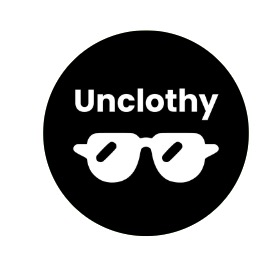Solution Review
Best PayPal Deepnude Sites 2024 – Rankings & Reviews

“DeepNude” software often associated with deepfake technology, generates nude images by digitally removing clothing from photographs. While the ethical and legal implications of such software are vast and complex, this post focuses on a specific aspect of its ecosystem: the use of PayPal for transactions related to DeepNude services.
Best online Deepnude Apps that accept PayPal
- @ClothOff – buy VIP coins via PayPal from 2$.
- @BraUndress Bot – easy to pay via PayPal.
- @lsp undres bot – by p2p dealers.
- @NuBee_Bot – by p2p, Price per 0.3 USD for 1 token.
Brief introduction to PayPal
PayPal is a digital payment platform that makes online transactions easy and secure. Founded in 1998, it’s widely used for sending and receiving money globally. You can link it to your bank account, credit, or debit cards. It’s popular for online shopping, transferring funds, and even for small businesses to handle payments. With PayPal, you can pay without sharing your financial details with sellers, adding an extra layer of security. It also offers buyer protection, ensuring you get a refund if there’s an issue with your purchase.
10 Best PayPal Deepnude Apps 2024 – Editor’s Choice
DeepNude App use AI algorithms to create altered images that appear as though individuals are undressed. Initially developed and released in 2019, the software was quickly condemned for its potential misuse, particularly in the context of privacy invasion and non-consensual imagery. Despite the original version being taken down, numerous iterations and similar services have since emerged, often operating through online platforms and messaging apps like Telegram.
ClothOff Undressing

@ClothOff – buy VIP coins via PayPal from 2$.
The higher the amount, the more coins you get. There are no additional bonuses for PayPal. The whole process from payment to receiving bonuses took me 3 minutes.
Buy VIP Coins:
2€ – 30 Coins
6€ – 120 Coins
+50% 15€ – 360 Coins
+60% 40€ – 1200 Coins
Bra Undress Bot

@BraUndress Bot – easy to pay via PayPal. 1 Free credits for new user.
PayPal offer:

Each successful payment will reset the VIP duration, according to the latest date.
After choosing a package, you will receive a message with a link to the PayPal account for payment.

Bra Undress Bot offers bonuses for payments via PayPal. The bonus amount depends on the package price. For example, for $20, the bonus is 24.6%. However, with cryptocurrency, you will still get more credits for the same amount.
Undress.app

Undress.app it is our favorite in terms of image generation quality and speed. Paid packages start at $10.
- Plan PRO 600 credits for €45.54
- Plan STANDARD 90 credits for €22.32
- Plan BASIC 15 credits for €10.22
OkBra bot

@OKbra Bot – New bot to try with 12 Free and 10 Paid Options.
The more you top up, the more discounts you get! The top-up tiers are as follows:
- 50 CR: 4 USD
- 100 CR: 8 USD
- 200 CR: 15 USD
- 500 CR: 30 USD
- 1000 CR: 50 USD
- 2000 CR: 80 USD
After the payment is confirmed by the backend, the CR will be automatically topped up to your OkBra account.
NudeMe bot

NudeMe-bot – Get 2 Free tries, 40 sec for the Result.
Please select topup amount!
✅ Topup 4.98$ – Receive 10 credits
✅ Topup 9.98$ – Receive 24 credits (BONUS 20%)
✅ Topup 29.98$ – Receive 78 credits (BONUS 30%)
✅ Topup 49.98$ – Receive 150 credits (BONUS 50%)
AI PIC U Bot

@lsp undres bot – by p2p dealers.
Use the command /pay to see the available payment methods. Then, by selecting PayPal, you will see available packages starting from $10. By choosing one of the available packages, you will receive a PayPal link to pay for the package and contact information in case of any issues.
PayPal packages:
- 9.90 USD for 15 points | ???? Lowest Price
- 19.90 USD for 90 points | ???? Hot!
- 39.90 USD for 210 points | ???? Get more at lowest price!
- 129.90 USD for 800 points | ???? Your business starts today!
- 199.90 USD for 1250 points | ???? Become a partner with us!
Currently, no additional bonuses are provided for using this payment method.
Nubee Telegram Bot

@NuBee_Bot – by p2p, Price per 0.3 USD for 1 token. The purchase of credits for generation takes place through an active p2p network. Currently, there are 12 accounts from all over the world who are ready to sell you some credits. Here are the most popular options:
- ???? 5 Credit = 6 USD
- ???? 10 Credit = 10 USD
- ???? 20 Credit = 19 USD
- ???? 30 Credit = 28 USD
- ???? 40 Credit = 37 USD
- ???? 50 Credit = 43 USD
- ???? 500 Credit = 310 USD
- ???? 1000 Credit = 590 USD
The whole process is automated, and after closing the deal, you can leave a review of the seller. I also used to sell extra credits there.
Unclothy Bot

Unclothy – new quick bot. 1 Free Try.
Select a number of credits from the list below ⬇️

These are the cheapest prices I’ve ever seen.
How our experts rate online Deepnude Apps that accept PayPal
Safety and security
Variety of generations
Bonus offers
Customer Service
Mobile Compatibility
How to make a deposit using PayPal in Deepnude-like App
PayPal, a widely used online payment system, is known for its strict policies regarding the types of services it supports. Given the contentious nature of DeepNude software, it’s crucial to understand how PayPal interacts with such services:
- Policy Compliance: PayPal’s Acceptable Use Policy outlines activities that are prohibited from using its service. Users involved in transactions for services that generate non-consensual pornographic content may find themselves in violation of these terms.
- Risks Involved: Engaging in transactions for DeepNude services through PayPal carries significant risks. PayPal has the authority to freeze accounts and hold funds if they suspect the violation of their policies. This can lead to complications for both buyers and sellers.
- Ethical Considerations: The use of PayPal or any other payment service for purchasing DeepNude services raises ethical questions. It’s crucial to consider the broader implications of supporting an industry that can potentially harm individuals’ privacy and dignity.
Because trading takes place via peer-to-peer, you as a customer are protected and can always open a dispute in case of fraud.
Alternatives and Precautions
For those seeking digital image processing services, there are ethical and legal alternatives that respect individual privacy and consent. It is advisable to seek services that are transparent in their operations and comply with legal and ethical standards.
The best online Deepnude bonuses at PayPal Deepnude Apps
Unfortunately, Paypal doesn’t have any additional bonuses for these apps compared to other payment methods. You get the best bonuses if you pay with crypto. But most of them also have no additional commissions.
Alternative payment methods
| 1. Apple Pay |
| 2. Telegram Stars |
| 3. Crypto (+10-20%) |
| 4. Visa or Mastercard |
Conclusion
The intersection of DeepNude software, PayPal, and ethical considerations presents a complex landscape. Users should exercise caution and be fully aware of the legal and ethical ramifications of their actions. As AI technology continues to evolve, it’s imperative that discussions around its application remain grounded in respect for privacy and human dignity.










